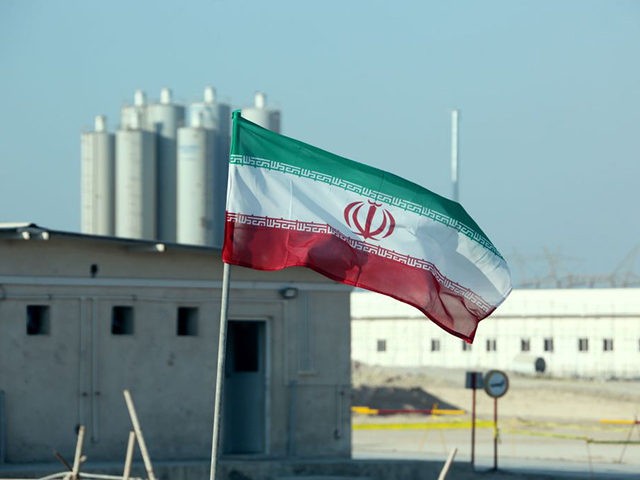Rafael Grossi, director-general of the International Atomic Energy Agency (IAEA), said Monday that the Iran nuclear deal should be fully restored within a matter of “weeks” or else Iran, which has aggressively violated the deal over the past few years, will soon begin processing weapons-grade uranium.
Iranian officials stressed they are unwilling to renegotiate any portion of the deal, although they suggested they might add a few non-negotiable demands, such as eliminating all future risks of “snapback” sanctions.
Grossi made his comments at the Reuters Next virtual forum Monday in response to a question about Iran’s announcement that it will begin enriching uranium to 20 percent fissile strength — a level far beyond any civilian energy need, and the last theoretical stop before weapons-grade enrichment begins.
“It’s not for me to say what to do, but it’s clear that we don’t have many months ahead of us, but rather weeks,” Grossi said.
“I wouldn’t like to receive a communication that because of the deadline of Feb. 21 the presence of my inspectors in Iran is going to be reduced. That would be bad news,” he added, referring to Iran’s threat to restrict visits to its nuclear sites by IAEA inspectors.
Grossi thought it would be possible for the Biden administration to bring the United States back into the nuclear deal, formally known as the Joint Comprehensive Plan of Action (JCPOA), on the one-month timetable specified by Iran’s threats.
“There will have to be a clear understanding on how the initial terms and provisions of the JCPOA are going to be re-complied with,” he said, likening the process to “putting the toothpaste back in the tube.”
Iranian lawmaker Ahmad Amirabadi Farahani said over the weekend that IAEA inspectors would be unilaterally expelled if “sanctions against the Islamic Republic of Iran are not lifted by February 21, especially in the fields of finance, banking, and oil.”
Iranian parliamentary speaker Mohammad Baqer Qalibaf demanded the unconditional removal of all sanctions, stating America’s return to the JCPOA is “not important to us,” but “the actual lifting of sanctions is.”
“The Joint Comprehensive Plan of Action is not a sacred agreement for us. It was accepted by Iran on the condition that sanctions would be lifted,” Qalibaf said.
On Tuesday, Iranian administration spokesman Ali Rabiei said “renegotiation of the JCPOA is out of the question, as Iran, China, and Russia have expressed their opposition.”
Rabiei demanded unconditional submission from the European signatories to the deal, no matter what the new U.S. administration does. Representatives of the European Union insisted they continued honoring their commitments to the JCPOA after the U.S. withdrew.
“We welcome President-elect [Joe] Biden’s positive statements on the JCPOA, and look forward to working with the incoming U.S. Administration,” said High Representative of the European Union for Foreign Affairs Josep Borrell.
Ali Akbar Velayati, a top adviser to Iranian Supreme Leader Ayatollah Ali Khamemei, said in an interview published Tuesday that Iran will demand the elimination of the “snapback” sanctions mechanism from the JCPOA — the provision that allows sanctions to be restored against Iran if it is caught violating its commitments.
“This mechanism must be abandoned as an irrational principle in the event of further negotiations. From the beginning, the Supreme Leader was not satisfied with the issue of the trigger mechanism and this was done against his will,” said Velayati.

COMMENTS
Please let us know if you're having issues with commenting.